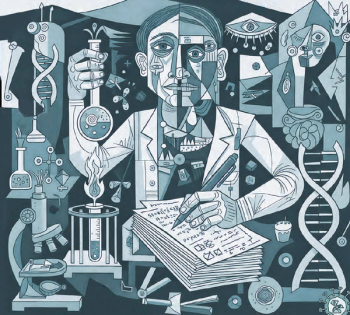
Antibody Cocktails Could Provide New Prophylactic, Therapeutic Options for COVID-19
New research based on animal models suggests cocktails of ultrapotent antibodies might help protect patients against SARS-CoV-2.
New results suggest antibody cocktails might have the power to protect against or treat coronavirus disease 2019 (COVID-19).
The study, based on tests on Syrian hamster models, offers a potentially fruitful avenue to combat the ongoing pandemic, and could potentially help scientists and public health officials buy time until a
Investigators including corresponding author David Veesler, PhD, of the University of Washington, explained that the virus that causes COVID-19, SARS-CoV-2 attaches to the viral transmembrane spike (S) glycoprotein via a receptor-binding motif (RBM) to angiotensin-converting enzyme 2 (ACE2). Thus, SARS-CoV-2 S is the primary target of vaccine and other therapeutic efforts, Veesler and colleagues noted. However, it’s unclear when a vaccine will be available, leaving a gap for other strategies, such as neutralizing antibodies, they said.
“Prophylactic and/or therapeutic antiviral drugs could address the gap before safe and efficient vaccines become widely available and will continue to have utility in unvaccinated individuals or those who respond poorly to vaccination,” they wrote.
The investigators have already identified a monoclonal antibody (mAb) isolated from the memory B cells of a patient who survived Severe Acute Respiratory Syndrome (SARS) a decade ago which appears to be effective at neutralizing SARS-CoV-2. The mAb works by recognizing the S receptor-binding domain of the virus without blocking attachment of ACE2, the investigators explained. They said RBD-targeted neutralizing antibodies from recovering COVID-19 patients have been shown to provide protection against SARS-CoV-2 challenge in animal models, making RBD an important target of neutralizing Abs. They added that clinical evaluation of therapeutic Abs that interfere with ACE2 binding is currently ongoing.
“mAbs with exceptionally high neutralizing potency, along with distinct and complementary mechanisms of action compared to existing mAbs may enable the formulation of mAb cocktails with enhanced efficacy to control the spread of the virus and prevent resistance,” they wrote.
Based on those emerging insights, the authors set out to discover whether the combination of 2 ultrapotent neutralizing antibodies, subbed S2E12 and S2M11 might successfully partner to fight the virus. Those antibodies were identified after screening more than 800 antibodies from 12 COVID-19 survivors.
In challenge tests using hamsters, the cocktail proved effective. The mAbs were administered via intraperitoneal injection 2 days prior to intranasal challenge with SARS-CoV-2. Four days after that, the investigators examined the lungs of the hamsters to quantify viral RNA and infectious virus. Either antibody alone or cocktails of the two both cut the amount of viral RNA by 2 to 5 orders of magnitude, the authors reported, demonstrating a “remarkable protective efficacy.”
“Cryo-electron microscopy structures show that S2E12 and S2M11 competitively block ACE2 attachment and that S2M11 also locks the spike in a closed conformation by recognition of a quaternary epitope spanning two adjacent receptor-binding domains,” they wrote.
Further study will be needed to see if the results can be replicated in humans, and it is
“We propose that combinations of mAbs leveraging multiple distinct mechanisms of action with additive or synergistic effects could provide additional benefits for clinical application,” they concluded.
Newsletter
Stay ahead of emerging infectious disease threats with expert insights and breaking research. Subscribe now to get updates delivered straight to your inbox.

































































































































